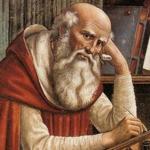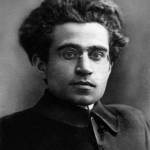James Dolezal (All That Is In God) spends a chapter defending the claim that God is eternal Creator. In the course of this discussion, he interacts with Scott Oliphint’s view that God takes on “properties that he otherwise would not have had” when he related to “something ad extra to which he was not related before,” that is, to creation (quoted from Oliphint, 95).
Dolezal summarizes Oliphint’s point: “By ‘covenantal character,’ Oliphint means a mode of being God has taken on in addition to His divine essence in order to interact with his creatures. He believes that it is only by assuming the temporal ‘covenantal property’ of Creator that God can create or act in time . . . . he seems to conceive of God’s assumed temporal properties as creaturely properties rather than as new divine properties” (95).
I don’t know if Dolezal’s summary is accurate. It seems possible that Oliphint is drawing something like what Dolezal himself cites as a traditional Reformed distinction between “absolute” and “relative” attributes. The latter point to the fact, in Dolezal’s description, “that some things we say about God are said only from the standpoint of our relation to God as creatures in time” (100, fn 56).
But, if Dolezal has gotten Oliphint right, Dolezal’s retort is a clever one: “Nothing that beings to exist can be regarded as properly divine. Divinity has no origin, limit, or measure. . . . If being Creator should be something temporal that God becomes, it would seem to follow that His actions in and toward the world as Creator are not properly the actions of God as divine. . . . if God should take on intermediary properties of being by which He acts in the world . . . then these properties, which are themselves not God, would form the foundation for God’s agency in the order of creation. Plainly put, if God should require the acquisition of new properties in order to mediate His activity toward and in the world, then He could not act in the world as divine, as God” (97-8).
That, as I say, is clever, if it’s on target. But Dolezal’s own position – a common position in the tradition, as he shows – is not without its difficulties. Stressing God’s simplicity, he writes that “The divine act of creation is nothing other than the eternal action of God’s immutable will. Thus, there is no distinction in agency between God’s will to create and the act of creating. . . . they are the same act in God. . . . In God, the willing is the producing. the producing and His act of production are timelessly eternal; what is produced is temporally indexed and creaturely” (100-1).
This doesn’t mean that creation itself is as eternal as the will to produce, which is identical to the production. Dolezal staves off this inference by distinguishing between the eternal act of creation and the temporal work that is created, but I can’t see how that saves him. If God eternally wills to create, and that will is itself the act of production, and yet the creation isn’t eternal, then it appears that God wills and produces without effect. . . . until. . . .
But we can’t say “until” because there is no before and after in the eternal life of God. So how does the created effect come to be? It seems we’re left with a dilemma: Either creation is eternal, or it can never come to be, since God’s eternal will-production doesn’t produce an equally eternal effect. And what are we to say about a God whose will-production is fruitless?
I imagine Dolezal has a way out, and perhaps I’ve misconstrued him. But the difficulties of his position raises fundamental questions about the set-up of the whole argument and debate. It can be put simply: Who is this eternal God of whom we speak?
If He’s the God whose eternal Son took flesh and died on a Roman cross, then He must be a God capable of entering time, living a human life, experiencing a succession of moments, enduring the end of death. Even if we say that God the Son didn’t experience time before the incarnation, yet He must be the sort of God for whom incarnation is possible. And if there is no potentiality in God, then something like an actualized “going to be incarnate” must characterize the eternal, ad intra life of the Son.
Dolezal criticizes “the recent evangelical penchant for finding in Christology the key to the mysteries of theology proper and the God-world relation” (94, fn 44), yet surely we are permitted a simple-minded observation: A God who can do what the Son did in Jesus is a God capable of fully entering into time.
I suspect Barth is the guide here: Our God is so utterly sovereign that He can enter into the changes of time without in any way suffering the temporal limits that block and frustrate us. He is so utterly Lord of time that he can subject Himself to time without ceasing to be Lord.
The references to the incarnation and to Barth highlight another dimension: What happens to the God-time question when we don’t talk about “God” but about “Father, Son, and Spirit”? Barth suggested that the Trinity introduces dynamism and movement into God Himself, an archetypal mode of divine time:
“If in this triune being and essence of God there is nothing of what we call time, this does not justify us in saying that time is simply excluded in God, or that His essence is simply a negation of time. On the contrary, the fact that God has and is himself time, and the extent to which this is so, is necessarily made clear to us in his essence as the triune God. This is his time, the absolutely real time, the form of the divine being in its triunity, the beginning and ending which do not mean the limitation of Him who begins and ends, a juxtaposition which does not mean any exclusion, a movement which does not signify the passing away of anything, a succession which in itself is also beginning and end” (Church Dogmatics, II/l, 615).
George Hunsinger has noted the unique contribution that Barth makes here: “Barth makes perhaps the first sustained attempt in history to reformulate eternity’s mystery in fully trinitarian terms. The mystery of eternity becomes in effect a subtopic in the mystery of the Trinity. Eternity holds no perplexities that cannot be stated in trinitarian terms, and the Trinity has no formal aspects irrelevant to the question of eternity, so that the form of the Trinity and the form of eternity coincide. Barth unfolds the mystery of God’s eternal time within a fully trinitarian framework” (quoted in Adrian Langdon, “Confessing Eternity: Barth and the Western Tradition,” Pro Ecclesia 21:2 [2012] 143).
Trinitarian theology isn’t magic. It doesn’t dissolve or solve every theological problem. But it dissolves a whole bunch of problems, and even when we can’t see why it is so, we must learn to do our theology as if God were Father, Son, and Spirit and none else. Because so He is.
















